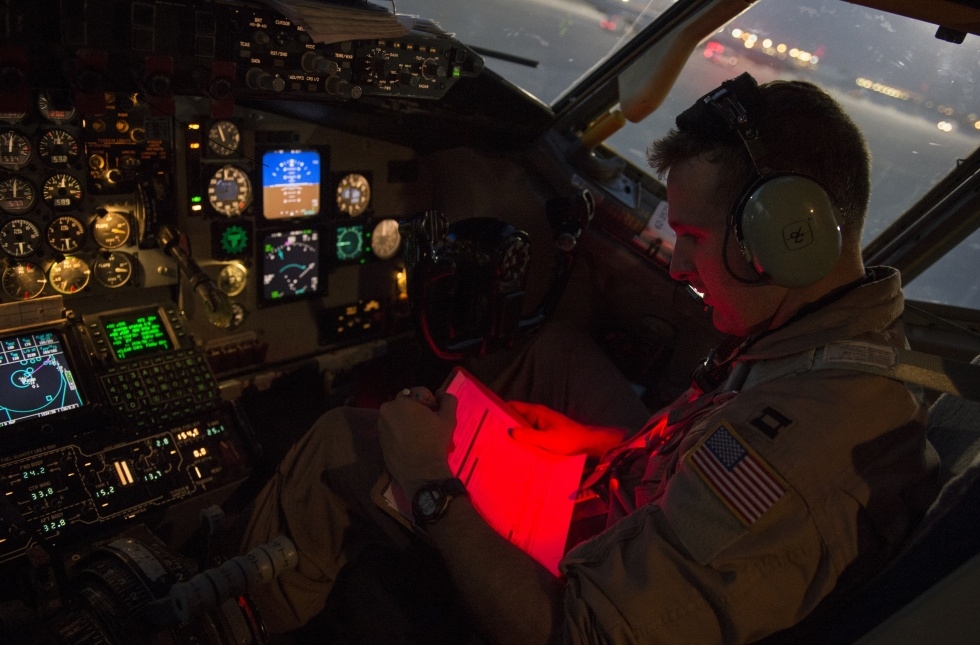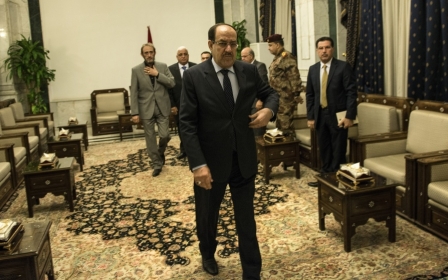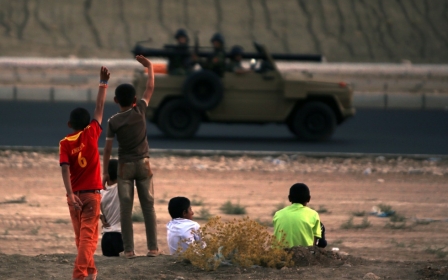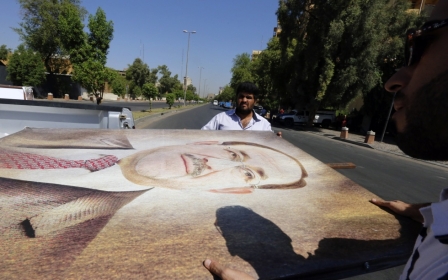US mulls Iraq air corridors as advisors head to Mount Sinjar

The United States is studying possibilities to help the civilians trapped on a mountain in northern Iraq by the advance of Islamic State (IS) militants -- including possible humanitarian corridors or air lifts.
US military advisors in Iraq are headed for Mount Sinjar to study means of evacuating civilians who have been trapped there by jihadists, a spokesman for the Kurdish peshmerga forces said Wednesday.
Around 130 US military advisors have arrived in Kurdish regional capital Arbil and "a group of them should be going to Mount Sinjar to study the situation there," Halgord Hekmat told AFP, without specifying whether they yet done so.
US President Barack Obama has pledged to help save the tens of thousands of members of minority groups, mainly Yazidis, stranded on Mount Sinjar
"There are a range of options. I don't want to get ahead of decisions that haven't been made yet. We're going to rely on what the teams report back in terms of their assessment," Deputy National Security Advisor Ben Rhodes said Wednesday.
"But you look at corridors, you look at airlifts.... That's exactly what our team is doing on the ground now in Iraq," he explained.
On Tuesday, Defense Secretary Chuck Hagel announced the deployment of 130 additional military advisors to Arbil, the capital of capital of the autonomous Kurdish region in northern Iraq, to give a "more in-depth assessment" of how to help the trapped Iraqis.
Rhodes added Obama was going to make a decision "in a matter of days."
"We don't believe it's sustainable to just have, you know, permanent air drops to this population on the mountain," he said, referring to the repeated deliveries of food and drinking water dropped by US aircraft this past week.
Rhodes said the United States was coordinating with Kurdish forces as well as with international partners.
Meanwhile, the Pentagon confirmed that four V-22 Osprey aircraft had arrived in Arbil along with the 130 military advisors, but refused to say whether they could be used to evacuate civilians.
The IS militants launched an offensive on June 9, swiftly taking over the main northern city of Mosul before sweeping across much of the Sunni heartland.
Meanwhile, German Chancellor Angela Merkel on Wednesday hailed the US air strikes against IS militants.
The German government has voiced no intention to support the military effort with troops or weapons, but is preparing to send non-lethal military goods such as armoured vehicles, night-vision equipment, booby-trap detectors, helmets and flak vests.
The White House on Wednesday urged Iraqi leader Nuri al-Maliki to step aside and allow the man nominated to become his successor as prime minister to form a government.
"He needs to respect that process," Rhodes told reporters. "This is what the Iraqis themselves have decided to do."
President Barack Obama on Monday threw his weight behind the choice of Haidar al-Abadi to form a new government, appealing to Maliki, without directly naming him, to peacefully turn over power.
"The White House will be very glad to see a new government in place with prime minister Abadi at the lead of that government," Rhodes said.
"We believe it's necessary, frankly, to bring the country together," he said, blaming sectarian divisions for a loss of confidence in the government and advances by Sunni militants.
Top Iraq Shiite cleric asked Maliki to go one month ago
Iraq's top Shiite cleric Grand Ayatollah Ali al-Sistani called for Maliki to be replaced with a more conciliatory figure, according to a letter released on Wednesday.
"I see the need to speed up the selection of a new prime minister," Sistani said in the handwritten letter addressed to leaders of Maliki's Dawa party, which was released by his office more than a month after it was written.
The new premier should be someone who "has broad national acceptance and is able to work together with the political leaders of the other (ethnic and religious) components to save the country from the dangers of terrorism, sectarian war and division," he said.
The call by Sistani, who is revered by millions, will carry enormous weight with the country's Shiite Arab community.
The release of the letter came as Maliki, the incumbent prime minister who has been determined to secure a third term, continued to defy the country's president and international pressure, insisting it would take a federal court ruling for him to quit.
"I confirm that the government will continue and there will not be a replacement for it without a decision from the federal court," Maliki said.
The two-term premier has accused President Fuad Masum of violating the constitution by approving the nomination of Haidar al-Abadi, another Dawa member, instead of him, and vowed to take legal action.
But even before the release of Sistani's letter, analysts said Maliki had lost too much backing to stay in power.
International support has poured in for Abadi, including from both Tehran and Washington, the two main foreign power-brokers in Iraq.
However, overcoming Iraq's problems will not be easy, analysts warn.
"This is not an instant thing – it’s a complex process. It will take a least a year to unify Iraq because there is no trust now," Fawaz Gerges, professor of international relations at the London School of Economics, told MEE.
"What Maliki has done in the last eight years is to deepen the social ideological and sectarian divide and trust is lost," he added.
Meanwhile, the Organisation of Islamic Cooperation (OIC) on Wednesday welcomed the nomination of Abadi as new prime minister of Iraq.
Abadi has won broad international backing, from the United States, Saudi Arabia and Iran amongst other countries.
Maliki said Wednesday it will take a court ruling for him to step down, defying President Masum's decision to task Abadi with forming a government.
New MEE newsletter: Jerusalem Dispatch
Sign up to get the latest insights and analysis on Israel-Palestine, alongside Turkey Unpacked and other MEE newsletters
Middle East Eye delivers independent and unrivalled coverage and analysis of the Middle East, North Africa and beyond. To learn more about republishing this content and the associated fees, please fill out this form. More about MEE can be found here.




